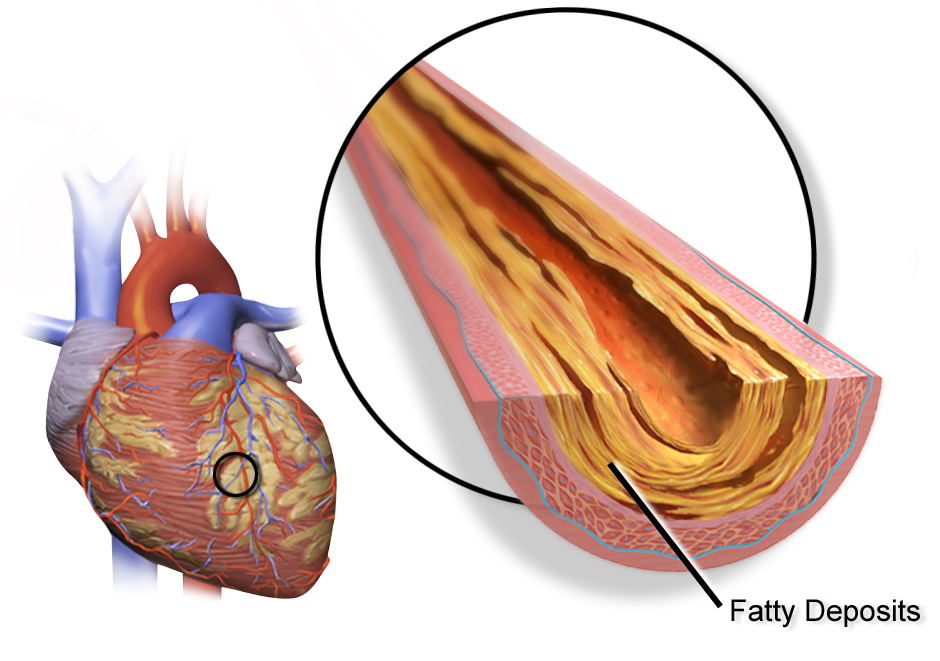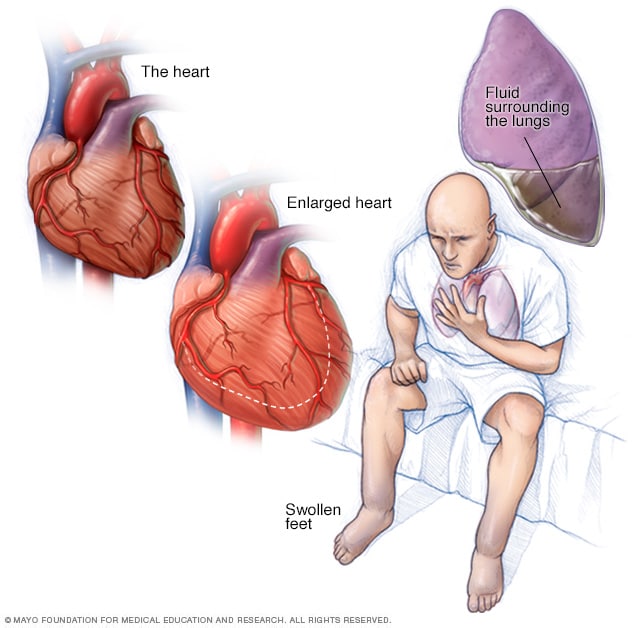How are the following heart-related health issues defined: cardiac arrest, heart attack, heart failure, coronary artery disease, and angina pectoris?
1 Answer
See below
Explanation:
-
Cardiac arrest is a loss of blood flow which results from the failure of the heart to effectively pump. You can not find a pulse.
-
myocardial infarction
#-># heart attack , occurs when blood flow decreases or stops to a part of the heart, causing damage to the heart muscle. The heart muscle has no longer an ordinary blood flow.

-
ischemic heart attack
#-># coronary artery disease includes stable angina, unstable angina, myocardial infarction, and sudden cardiac death. This is the most common type.
Ischaemia means a "reduced blood supply".
"Most ischaemic heart disease is caused by atherosclerosis, usually present even when the artery lumens appear normal by angiography." https://www.sciencedaily.com/terms/ischaemic_heart_disease.htm

The picture above shows atherosclerosis in a coronary artery -
heart failure
#-># congestive heart failure, occurs when your heart muscle doesn't pump blood well.
"Certain conditions, such as CAD or high blood pressure, gradually leave your heart too weak or stiff to fill and pump efficiently."#-># https://www.mayoclinic.org/diseases-conditions/heart-failure/symptoms-causes/syc-20373142
Symptoms: Shortness of breath, feeling tired, leg swelling

- angina pectoris
#-># a term used for chest pain caused by reduced blood flow to the heart muscle.

